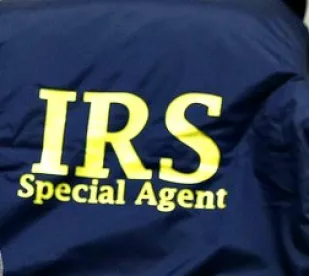On March 20, 2020, Treasury Secretary Steven Mnuchin announced a special extension to the federal income tax return filing deadline. Many individuals and businesses now have until July 15, 2020, instead of April 15, 2020, to file their 2019 tax returns. This announcement followed an earlier announcement extending the income tax payment deadline. These announcements are reflected in IRS Notices 2020-18 and 2020-17, respectively.
The announcement of the filing deadline extension was welcome news on the heels of the payment deadline extension, but it also raised many important questions that were not addressed by Notice 2020-18. For example, many taxpayers questioned whether the deadline to make a 2019 contribution to an individual retirement account (IRA) could be delayed until July 15 (i.e., because contributions to IRAs can normally be made any time until the due date for filing a return for that year). The IRS addressed this and other important questions in a Q&A released on March 24. A link to the Q&A follows:
https://www.irs.gov/newsroom/filing-and-payment-deadlines-questions-and-answers
Question 17 confirms that the deadline for making a 2019 contribution to an IRA is July 15, 2020.
The Q&A also address related questions that are relevant for employee benefit plan sponsors and their participants. These include:
- Early Withdrawal Penalties – Generally, amounts distributed from an IRA or employer-sponsored qualified retirement plan before the IRA owner or plan participant reaches age 59.5 are taxable and subject to a 10% early withdrawal penalty. Generally, the early withdrawal penalty is calculated, reported, and paid at the same time as the income tax owed on such distributed amounts. Question 18 confirms that the deadline for reporting and paying the 10% early withdrawal penalty on amounts distributed in 2019 is extended to July 15, 2020.
- Distribution of Excess Deferrals – Code Section 402(g) limits the amount of elective deferrals a qualified retirement plan participant may make each year. This limit is subject to annual cost-of-living adjustments. For 2019, the limit is $19,000. Excess deferrals for a year can be corrected by having the plan distribute them (plus allocable earnings) before April 15 of the following year. If excess deferrals are not otherwise corrected and are not distributed by April 15, then the plan would be subject to disqualification, and the affected participant would be subject to penalties and potential double taxation (i.e., excess amounts would be taxed both in the year contributed to and in the year distributed from the plan). Question 19 confirms that the April 15, 2020 deadline to distribute 2019 excess deferrals is not extended to July 15, 2020.
- Employer Contribution Deadline for 2019 Deduction – Employers can deduct amounts they contribute to qualified retirement plans in the year such contributions are made, even though such amounts are not included in participants’ taxable income until later. The qualified plan deduction rules provide a grace period so that amounts contributed after the end of the year can be deductible for that year as long as such amounts are contributed by the employer’s tax return filing deadline. Question 20 confirms that employers now have until July 15, 2020 at the earliest to fund 2019 deductible contributions. Plan sponsors who extend the filing of their returns may still make deductible contributions until the extended due date.
- Health Savings Account (HSA) Contribution Deadline – Individuals covered by high-deductible health plans can make pre-tax contributions to HSAs, subject to annual dollar limits. HSAs may be used to defray certain qualified medical expenses. Contributions for a year are generally due by the individual’s tax return filing deadline (generally April 15). Question 21 confirms that the deadline for 2019 HSA contributions is extended to July 15, 2020.
We continue to monitor the tax and employee benefits aspects of COVID-19 relief legislation and related agency guidance.



 />i
/>i
